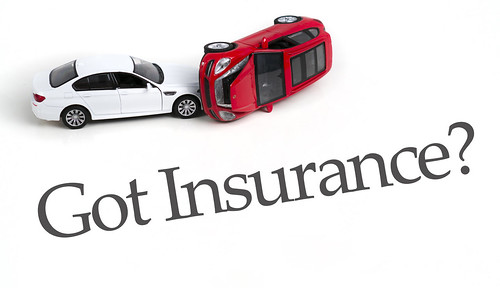An SR-22 form isn’t an insurance policy, but it’s an official form the insurance company maintains with your state to prove you are carrying liability insurance that meets minimum requirements. The SR, or safety responsibility 22 form, often filed electronically, is required for motorists with more severe motor vehicle infractions like driving under the influence or an uninsured accident.
This form sometimes referred to as a Certificate of Financial Responsibility, may be required to keep or reinstate your driver’s license after an infraction and is required to be maintained for three years in Illinois.
Who Is Required to Have an SR-22?
State laws vary, but this form is generally required for serious or multiple motor vehicle offenses for drivers to keep or reinstate their driving privileges. While the SR-22 is evidence of state-mandated minimum insurance coverage, Florida and Virginia have a form called an FR-44 that requires insurance that exceeds state minimums. Delaware, Kentucky, Minnesota, New Mexico, New York, North Carolina, Oklahoma, and Pennsylvania don’t require SR-22 filing.
Illinois requires an SR-22 form for three years, with non-payment of insurance and cancellation of a policy resulting in driver’s licenses being suspended immediately. Cancellation of the SR-22 filing can result in driver’s license suspension, fees, and vehicle registration suspension. Drivers are notified by either the state or traffic court if this form is required. In some cases, it may also be required for failure to pay child support, which may affect driver’s license status.
How Do I Request an SR-22?

You need to request this form from your insurance company, such as American Auto Insurance after the state or traffic court informs you that it’s required. States levy a one-time fee of about $25 per person for this form, which the insurance company fills out and maintains as long as it’s required. For example, the filing fee in Illinois is between $15 and $25. In Illinois, the SR-22 is considered a certificate of financial responsibility and is filed with the Illinois Secretary of State’s office.
Not all insurance companies offer SR-22 services, and some may cancel policies after a serious moving violation or multiple tickets. As a result, drivers will likely have to pay higher premiums and possibly seek an insurer specializing in high-risk drivers. Drivers may also have to pay the entire insurance premium upfront, typically for a period of six or 12 months. Illinois residents may also deposit $55,000 in cash or securities with the State Treasurer, file a surety bond, or file a real estate bond approved by a court of record instead of an SR-22.
How Long is an SR-22 Required?
States commonly require this form to be maintained for three years, but this may vary depending on state laws and motor vehicle infractions. Some states require proof of continuous car insurance coverage for a more extended period of time, sometimes five years. In addition, insurance companies are required to report canceled insurance policies or a lapse in coverage to the state. Noncompliance with the SR-22 requirement can result in the suspension of your driver’s license.
Once the requirement is lifted, you need to notify the insurance company that it no longer needs to maintain this form with the state. The insurance company will remove the form. At this time, you may qualify for lower-cost car insurance coverage. Accidents and severe traffic violations commonly increase insurance costs for three to five years. People who move out of state typically have to maintain an SR-22 form, as the requirement usually follows you. It is essential to confirm you are complying with any orders or risk having your driver’s license suspended or face fees.
What Kind of Car Insurance Should I Have?
States require drivers carry minimum liability protection to cover damages to others’ vehicles and any injuries the other party incurs. While the coverage protects you from liability for others’ losses, you should consider additional insurance options above the minimums. Uninsured/underinsured motorist protection covers your injuries if you are in an accident with a driver who doesn’t have any or carries insufficient insurance. Personal injury protection in a car insurance policy covers your injuries regardless of who is at fault.
Collision or comprehensive insurance covers repairs or replacement of your vehicle. This insurance is important to maintain for vehicles that are newer and have a higher value. In addition, it’s typically required for vehicles that have a loan to protect the lender from a loss.
What If I Don’t Own a Car?
Some people may be required to carry a non-owner SR-22 insurance policy to keep or reinstate their driving privileges. For example, non-owner policies cover the driver if they borrow or rent a car and have an accident. The policies also help drivers avoid having a lapse of coverage, which can cause them to become considered higher risk and increase insurance costs after the SR-22 is lifted.
Non-owner policies have liability coverage for injuries and damage caused while using a borrowed or rented car. Still, they don’t cover the borrowed or rented vehicle itself or any medical bills you may accrue after an accident. Non-owner policies often default to state minimums for coverage, but higher coverage limits are often available. Non-owner policies may also have options to add uninsured/underinsured motorist protection and personal injury protection coverage.
Damage to the car is covered by the owner’s policy or through additional insurance purchased from the car rental company. The liability protection provided by non-owner policies typically does not have a deductible. Non-owner policies may not be suitable for those who regularly borrow a vehicle from a relative or someone living at the same address. This vehicle use may require being added as a driver to the other person’s insurance policy.
An SR-22 insurance requirement can come at a difficult time and require you to search for car insurance that meets this requirement and fits your budget. Find out more details about SR-22 insurance in Illinois and how you can reinstate car insurance that meets this requirement. Then, once you’re familiar with your options, get a free quote from American Auto Insurance and get back on the road safely with peace of mind.


